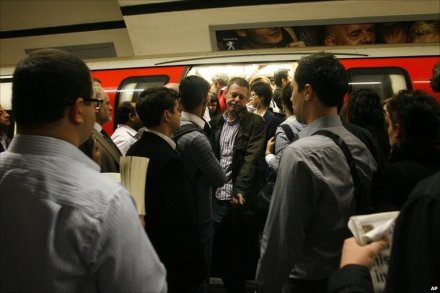
So the National Executive Committee (NEC) has agreed to charge £3 for non-members to vote in the primaries for the London Mayoralty. I don’t think it’s the right decision but in truth the state of democracy in the capital throws up bigger things to worry about: like widespread disinterest in politics, right, left and centre.
Barely one in three (38%) voted in the last mayoral election with the vote topping half the electorate in just two wards and dropping to less than 20% elsewhere in the capital
More than double the number of eligible voters (84%) made their mark in the Scottish referendum. Here voters apparently relished serious debate and towards the end of a two year discussion the politicians were no longer dictating the terms of the debate. For once in modern politics the dog was wagging the tail.
The results of the referendum showed an appetite for devolution. The level of engagement, in the campaign as well as in the vote itself, revealed an appetite for democratic participation. Both are important and, to a certain extent participation should be expected to flow from devolution, but this is not inevitable or automatic
The first, challenging though it is, may be easier to satisfy than the second but we won’t engage Londoners and we certainly won’t tackle London’s many problems if the next mayoral election offers no more than a dreary parade of top down, patronisingly short, infinitesimally differentiated, bog standard political retail campaigns.
Democracy only works when the voters believe that it can. An enfeebled mandate means a weaker mayor, a weak mayor undermines the faith yet further. We’ve not yet reached the position of Chisinau, the capital of Moldova, where the most recent mayoral election had to be repeated three times due to lack of interest, but we’re getting there. We need to retool democracy for the 21st century with a whole new approach to politics in London , not just for 6 weeks every four years but all the time.
In our forthcoming paper contributors to Changing London have suggested processes for involving voters in running local services, in choosing between options for an allocation of the budget as Parisians have being doing this summer, even, in the absence of more conventional fiscal powers, in paying a voluntary tax. Utterly ludicrous? What if the tax was linked to an ambitious life changing programme like a Job guarantee for every London youngster? It may or may not work but it is just the kind of disruptive provocation that we need to reawaken political interest in the capital.
Our next mayor must draw from the experience of the many, seek opinions on priorities, work with others on design and delivery and, because collaborative leadership is only purposeful leadership when the goals are explicit, they must root it all in an equivocal set of values unconditionally upheld.
We think that this combination of fresh ideas, strong values and a deeper democracy would be good for London. We also think that a mayoral candidate offering this approach to leadership in 2016 would be very smart politics, renewing our confidence in politicians and reigniting interest in the democratic process.
David Robinson runs www.change-london.org.uk. The next Changing London Paper “A Deeper Democracy” will be published in two weeks time




More from LabourList
Tom Belger column: ‘Why is Labour making migrant exploitation easier?’
Ashley Dalton resigns as health minister for cancer treatment
Paul Nowak column: ‘Labour must focus on the basics’